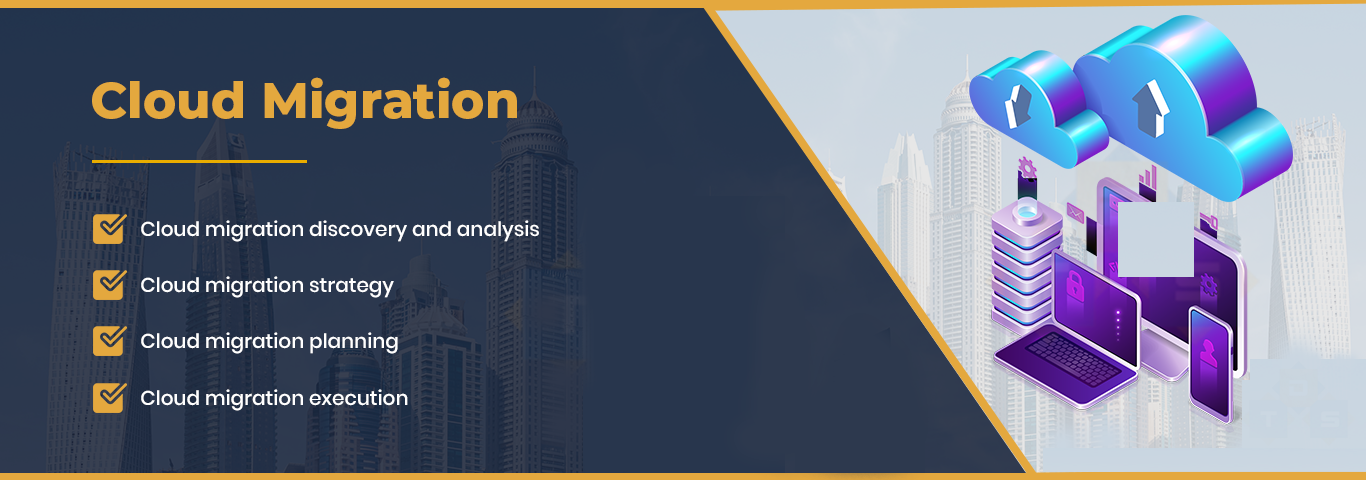
Once you build a foundation of cloud program, the next step is to do migration of full-scale portfolio.
We follow these key components for cloud migration:
End-to-end Automation
Cloud migration is a time-consuming process. End-to-end automation of IT processes and infrastructure brings in an element of repeatability and reuse, which helps in reducing migration time and cost as well as minimizes business disruption in the interim.
Innovation
Disruptive cloud capabilities such as artificial intelligence (AI) and machine learning (ML) play a key role in driving automation in the current technology landscape, helping the migrated tech infrastructure to operate seamlessly and improve continuously in the cloud environment.
Disaster Recovery
In cloud computing, disaster recovery provides you the option of storing critical applications and data in cloud storage, so that these can be moved to a secondary site in case of a disaster. It proves to be an extremely cost-effective method of maintaining backups.
Cloud Governance
A set of rules meant to make certain principles and policies of cloud computing services binding on service providers, Cloud Governance is crucial for securing applications and data, even if these are distantly located. By streamlining the implementation and management of cloud infrastructure, it helps curb the tendency to resort to shadow IT as well as manage the labor needed to effectively manage cloud computing capabilities.
Remote Access and Control
Enabling cloud-based remote access and control allows an organization’s workforce to use service databases and documents from anywhere through communication and collaboration software, apps, and tools. This makes processes more efficient by making the time- and labor-intensive file-sharing obsolete.
Shared Resources and Cost-effectiveness
The shared resources and pay-for-use models of a public or hybrid cloud help reduce costs significantly. You no longer need to maintain and support local servers or pay a team of on-site experts for managing the IT infrastructure.